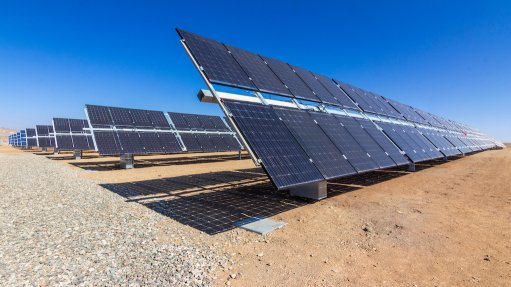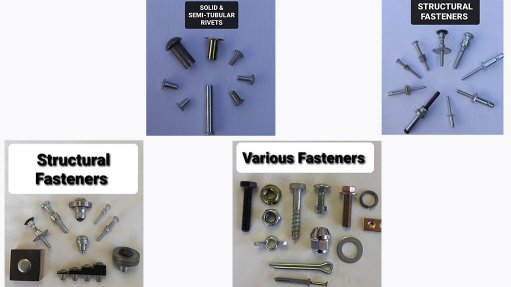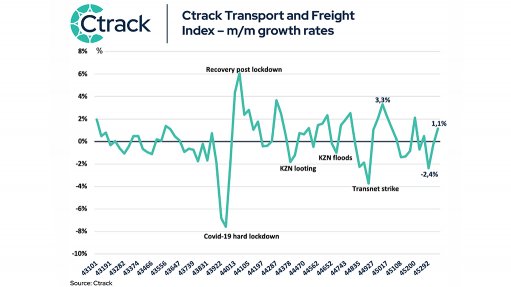Covid-19 threatens delay of 5G standardisation
The delays caused by the Covid-19 pandemic of vital standardisation is threatening the economic growth and deployment of fifth-generation (5G) technology for the enterprise market.
A new White Paper published by global technology market advisory firm ABI Research reports that the relevant standardisation body, 3GPP, has formally announced a deferral of standardisation to at least June 2020.
This means that the commercial roll-out of industrial 5G will be delayed to at least 2022, the report, ‘Taking Stock of Covid-19: The short- and long-term ramifications on technology and end markets’, indicates.
“Given that most industrial enterprises are looking to upgrade their communication technology in 2021, this delay will result in 5G missing out on at least 25% of the revenue opportunities within industrial enterprises, which, given the importance of industrial use cases for overall 5G revenues, translates into 5G losing up to 10% of total 5G revenues.”
In the long run, this could result in a shortfall of several billion dollars in contribution to the global economy, states ABI Research.
“This is a blow to the standards bodies and the timeline of 5G. The cancellation of leading industry events, such as the Mobile World Congress, in Barcelona, caused more complicated workflows for 3GPP,” says ABI Research principal analyst Leo Gergs.
However, despite the short-term upset, which puts the timely enterprise roll-out of 5G at risk, enterprise verticals, in the long term, will consider 5G for automating workflows in factories and other industrial environments in order to keep supply chain disruptions to a minimum.
However, the current experiences will ignite considerations for 5G applications in healthcare and agriculture and food production, Gergs says.
“We will see 5G applications for life-critical verticals, such as agriculture and food production, pick up pace, while a growing number of countries will consider enhancing their healthcare sector with 5G-enabled capabilities,” Gergs points out.
The brief ‘pause’ in production processes of some major economies should give the industry an opportunity to consider strategies to reinvigorate itself.
Meanwhile, the Covid-19 outbreak has significantly hampered the global mobile device market, with mass disruption to production lines and a stalling of related supply chains caused by labour shortages and inactive logistics.
“As China is also the world’s manufacturing centre for the majority of these device types, and one of its biggest markets, the sector has been hit hardest by delayed shipments and a weakened development of next-generation products,” ABI notes in the white paper.
“With the vast majority of leading smartphone vendors, including Apple, Huawei, Xiaomi and OPPO, having the bulk of their production in China, they have now been forced to adjust their roadmaps for new models and have revised downward their shipment projections for 2020,” the report continues.
This means that the production of smartphones could potentially be slashed by as much as 30% in the first half of 2020, with disruptions in device distribution channels amplifying the impact, leading to malfunctions in the supply chain and the management of device and components inventories.
Significantly, in the short term, there will also be an adverse effect on 5G devices.
“5G smartphones had started to gain some traction and break into the market in significant numbers; [however], the outbreak will now trigger a suppression of its near-term growth, . . .[and] push out the development and introduction of affordable 5G phones.”
ABI expects a slower-than-anticipated recovery of capacity after the resumption in production, notably in the smartphone and notebook segments, and consumer confidence will take some time to return.
Comments
Press Office
Announcements
What's On
Subscribe to improve your user experience...
Option 1 (equivalent of R125 a month):
Receive a weekly copy of Creamer Media's Engineering News & Mining Weekly magazine
(print copy for those in South Africa and e-magazine for those outside of South Africa)
Receive daily email newsletters
Access to full search results
Access archive of magazine back copies
Access to Projects in Progress
Access to ONE Research Report of your choice in PDF format
Option 2 (equivalent of R375 a month):
All benefits from Option 1
PLUS
Access to Creamer Media's Research Channel Africa for ALL Research Reports, in PDF format, on various industrial and mining sectors
including Electricity; Water; Energy Transition; Hydrogen; Roads, Rail and Ports; Coal; Gold; Platinum; Battery Metals; etc.
Already a subscriber?
Forgotten your password?
Receive weekly copy of Creamer Media's Engineering News & Mining Weekly magazine (print copy for those in South Africa and e-magazine for those outside of South Africa)
➕
Recieve daily email newsletters
➕
Access to full search results
➕
Access archive of magazine back copies
➕
Access to Projects in Progress
➕
Access to ONE Research Report of your choice in PDF format
RESEARCH CHANNEL AFRICA
R4500 (equivalent of R375 a month)
SUBSCRIBEAll benefits from Option 1
➕
Access to Creamer Media's Research Channel Africa for ALL Research Reports on various industrial and mining sectors, in PDF format, including on:
Electricity
➕
Water
➕
Energy Transition
➕
Hydrogen
➕
Roads, Rail and Ports
➕
Coal
➕
Gold
➕
Platinum
➕
Battery Metals
➕
etc.
Receive all benefits from Option 1 or Option 2 delivered to numerous people at your company
➕
Multiple User names and Passwords for simultaneous log-ins
➕
Intranet integration access to all in your organisation

















